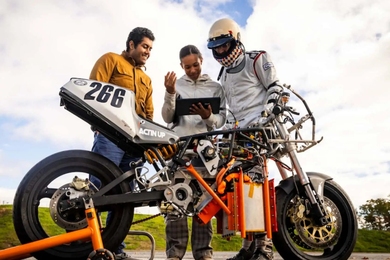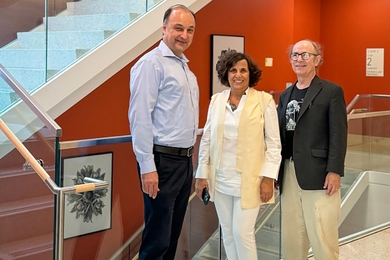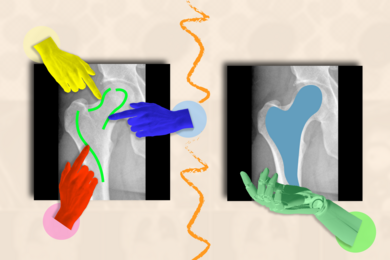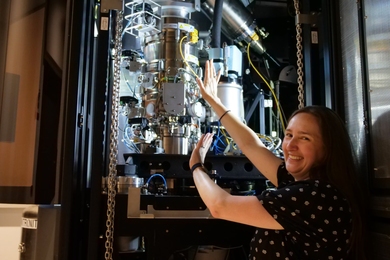In an era defined by unprecedented challenges and opportunities, MIT remains at the forefront of pioneering research and innovation.
The Institute's relentless pursuit of knowledge has once again been recognized, with MIT securing 365 utility patents issued by the United States Patent and Trademark Office in 2023. This marks the 10th consecutive year that the National Academy of Inventors has both ranked worldwide colleges for number of U.S. patents issued and recognized MIT as the top single-campus university for patents granted. (The University of California system, which comprises 10 campuses and six academic health centers across the state, is No. 1 overall.)
Technology transfer is at the core of MIT’s mission to advance knowledge for the benefit of the world, and the Technology Licensing Office (TLO) plays a transformative role in bridging the gap between groundbreaking research and societal impact. Impact is recognized in many ways through startups, small- to medium-sized companies, and large corporations. The TLO's efforts in patenting and licensing are vital for transforming academic discoveries into practical solutions that address societal needs, drive economic growth, and create new opportunities.
Each year, the TLO receives over 600 invention disclosures, resulting in a high volume of issued patents. The TLO's ongoing strategic licensing efforts bolster MIT’s endeavors across six clear impact areas: healthy living, sustainable futures, connected worlds, advanced materials, climate stabilization, and the exploration of uncharted frontiers. These areas, intentionally curated to reflect the interests and priorities of MIT’s faculty and research staff, drive meaningful change through translation and tech transfer.
Lesley Millar-Nicholson, the executive director of the TLO, further underscores the importance of aligning efforts with President Sally Kornbluth’s vision for MIT. “Our collaborative efforts ensure that the innovations born here at MIT make a difference across the globe, addressing some of the most pressing challenges of our time,” Millar-Nicholson states. “This reflects a shared commitment to what Kornbluth described in her inaugural address about climate change, ‘... [this is] the kind of grand creative enterprise in which the energy you release together is greater than what you each put in. A nuclear fusion of problem-solving and possibility!’”
Verdox and Cognito Therapeutics are two of the many startups that epitomize a grand creative enterprise. Verdox, a startup from the lab of T. Alan Hatton, the Ralph Landau Professor of Chemical Engineering Practice and director of the David H. Koch School of Chemical Engineering Practice, is on a mission to combat climate change by capturing carbon dioxide with unrivaled efficiency using electricity. Cognito, which sprang from the labs of Li-Huei Tsai, professor of neuroscience and director of the Picower Institute for Learning and Memory, and Edward Boyden, the Y. Eva Tan Professor in Neurotechnology and member of the McGovern Institute for Brain Research, pioneers treatments for neurodegenerative diseases, including dementias, offering Alzheimer's patients a beacon of noninvasive hope with their neuro-stimulatory therapy. These enterprises, just two of many that have licensed and are developing MIT’s intellectual property, embody the spirit of MIT — they are not merely companies; they are catalysts for a more sustainable, healthier world.
Technology Licensing Officer Nestor Franco highlights the daily journey of MIT’s research from concept to commercialization: “Our commitment to out-license these innovations not only amplify MIT's contribution to global progress but also reinforces our dedication to societal betterment,” he says.
As MIT continues to push the boundaries of what is possible, from deep space to quantum computing, the TLO remains a cornerstone of the Institute's strategy for impact.
To explore the cutting-edge technologies emerging from MIT, visit patents.mit.edu. Here, you can discover the innovations available for licensing that are set to shape the future. To delve deeper into the work and initiatives of the TLO, and to understand how MIT's inventions are transformed into societal solutions, visit tlo.mit.edu.
.jpg?itok=Osm9qAUJ)





